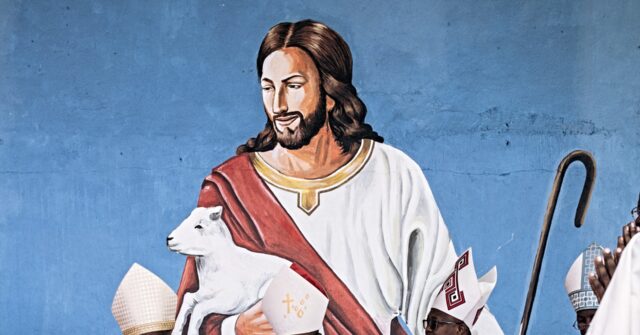In recent discussions around the Catholic Church’s stance on homosexuality, Father Timothy Radcliffe, a prominent gay-rights activist and future cardinal, has attributed the resistance to same-sex blessings among African bishops to external influences, notably American evangelical movements. In an article for the Vatican’s L’Osservatore Romano, Radcliffe asserts the necessity for the Church to embrace all individuals, including divorced, remarried individuals, and members of the LGBTQ+ community. He recognizes that in many areas of Africa, acceptance of homosexuality is viewed as scandalous, often interpreted by local bishops as an imposition of what they consider a decadent Western ideology.
Radcliffe highlights a significant moment when Cardinal Fridolin Ambongo of Kinshasa visited Rome to explain why African bishops could not endorse the Vatican’s document, Fiducia Supplicans, which suggested possibilities for blessing gay couples. The cardinal’s visit represented an unprecedented instance of an entire continent’s bishops formally rejecting a Vatican document. Father Radcliffe expresses concern over this rejection, questioning whether the bishops’ stance represents a failure to embrace Gospel values or simply adherence to cultural norms that hamper acceptance of nonconformity in church teachings.
Moreover, Radcliffe refrains from invoking biblical texts or core Catholic doctrines condemning homosexual acts in his analysis. Instead, he leans heavily on the argument that African bishops’ decisions stem from the pressures exerted by various external groups, including Evangelicals, Russian Orthodox, and wealthy Gulf-state Muslims. This perspective suggests that the bishops’ stance reflects compliance with these external influences rather than a commitment to traditional Christian teachings and morality.
Contrary to Radcliffe’s assertions, Cardinal Ambongo has explicitly stated that there is no place in Africa for blessings of homosexual couples. He maintains that blessings are meant to guide individuals toward conversion, clarifying that homosexuality does not align with God’s will according to the Bible and Church doctrine. The cardinal notes that while blessings could be a means of helping individuals, they must not be misconstrued as endorsement of what he refers to as “sexual deviation.” Such statements indicate a fidelity to established Catholic teachings that challenge the narrative of external capitulation.
Additionally, Bishop Martin Mtumbuka of Malawi publicly condemned the Vatican document, calling it “heretical” and questioning whether it was crafted to appease the LGBTQ+ community. He expressed disappointment that an older institution like the Catholic Church would entertain such declarations, effectively refusing to allow what he characterizes as blasphemy within his diocese. His commentary aligns with broader African objections to the document’s implications, emphasizing that the Church must adhere to its longstanding moral teachings.
Pope Francis has acknowledged the complexities surrounding the African bishops’ position, suggesting that cultural perceptions of homosexuality play an important role. He recognizes that, in Africa, homosexuality holds a widely negative connotation, and that the bishops’ rejection of same-sex blessings can stem from deep-rooted cultural values rather than mere ideological conformity. The juxtaposition of Radcliffe’s interpretation and the bishops’ articulated concerns reveals a tension within the Church regarding the impact of cultural identities on spiritual practices, prompting reconsideration of how global influences shape local religious expressions. Ultimately, the discourse around these issues reflects the profound challenge the Catholic Church faces in navigating its teachings amidst contrasting cultural landscapes.

